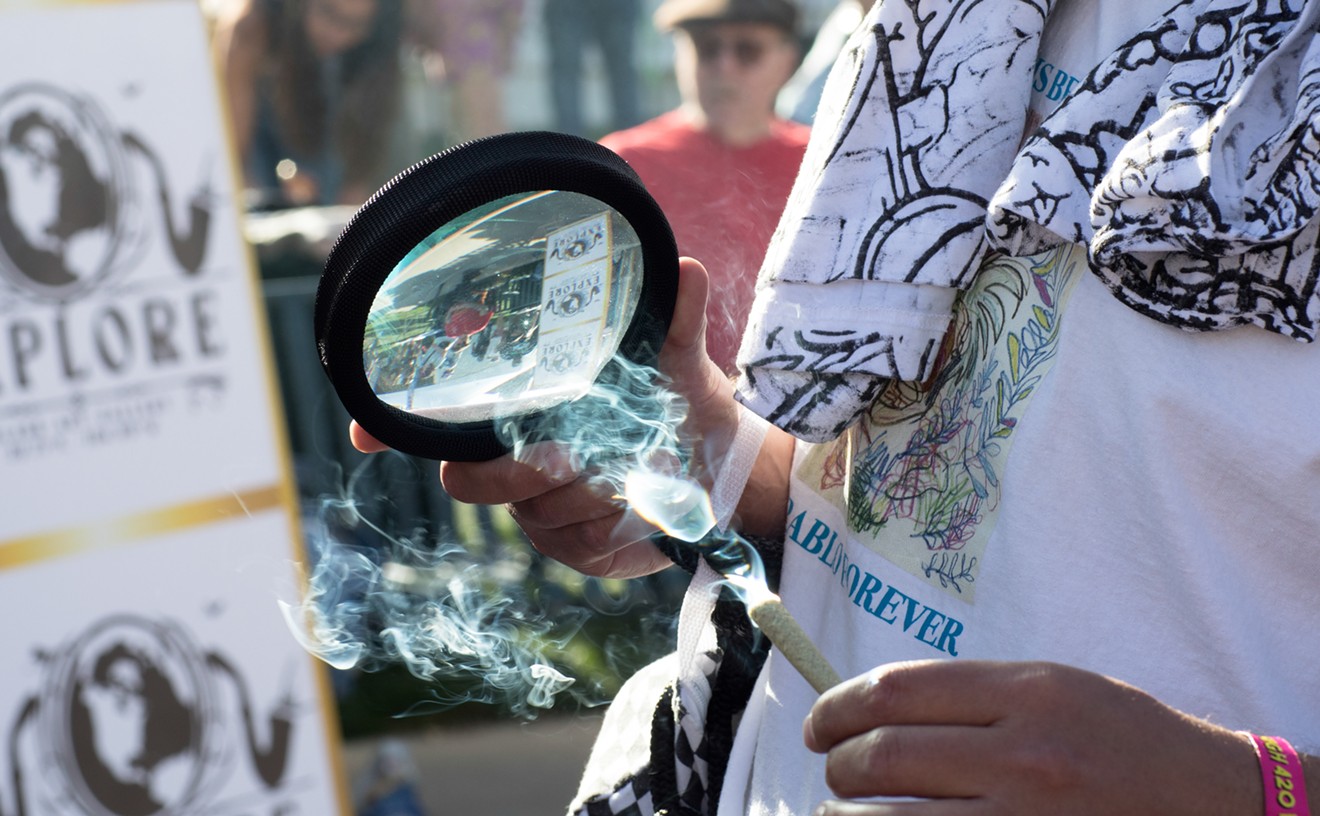Marijuana is now legal in more than half the country, but related areas of the law are taking a while to catch up. Women are still being punished for exposing their babies to marijuana; under child-abuse and child-neglect statutes, women can be arrested for child endangerment or have their babies taken away.
Even so, little is known about whether an infant can be harmed if an expectant mother uses marijuana during pregnancy or after birth. Dr. Thomas Hale is working to change that.
Hale's Medications and Mother's Milk looks at every drug from aspirin to cancer medications. Now Hale and the Infant Risk Center at Texas Tech University Health Sciences are conducting a study in Colorado to learn more about how cannabis metabolizes in breast milk and get some crucial answers.
Hale says his office gets at least a phone call a day from hospitals wondering what to do when mothers screen positive for marijuana. "The need in this field is just enormous. It varies all across the United States how the hospitals respond, so we want to get some good, decent data on marijuana," he explains. "Right now, the current estimates are that somewhere between 10 to 15 percent of mothers use marijuana while they're pregnant, so we know they're probably going to use it while they're breastfeeding.... We just need to know with some good hard data if there are risks to the baby."
Hale is looking for more participants for his Colorado study, which he promises is 100 percent confidential; Hale and his team used similar safeguards to investigate HIV in the ’80s. For this study, they've selected a specific strain of cannabis and are asking new mothers to use only that strain at specific time intervals and then provide milk samples. From there, Hale and his team can begin to quantify whether there is risk to the baby.
"We've set up really defined protocols so we know exactly how much the mother got, how much she smoked, what the time intervals were — it's what we call a pharmacokinetic study," Hale says. "From that, we can make estimates about how much the baby is going to get and see if there is any risk to the baby at all."
Study administrators didn't know much about marijuana when they started work on the project, so they enlisted different groups in Denver to help design the study and determine what strain to use.
One of the groups working with Hale is Elephant Circle, a local group founded in 2009 that focuses on reproductive justice and protecting and educating mothers and health-care providers.
"It's so backwards right now with regard to marijuana," says Indra Lusero, founder and director of Elephant Circle. "When people are smoking nicotine cigarettes, they're actually encouraged to breastfeed because of how it can help mitigate some of the harms of smoking, and yet people using marijuana are told to just stop breastfeeding altogether, which is just illogical."
Only three scientific papers have been published in the United States addressing the effect of cannabis on a breastfed child, according to Dr. Heather Thompson, deputy director of Elephant Circle. The only one of those that measures THC in breast milk is from 1982, and it studied just two subjects. "All of Colorado policy around marijuana use and breastfeeding is derived from one person's data," she notes.
Most physicians advise pregnant woman to refrain from breastfeeding if they use cannabis. But they really don't have any scientific information to make informed decisions, Thompson adds: "Due to a lack of information, people are filling the void with bias."
New Colorado mothers can help change that. To join in the study, a woman must have given birth between one and six months ago and be nursing exclusively — so that will Hale and his team can control the milk product. After six months, Hale notes, the milk compartment changes and milk volume begins to go down, so the time frame is important.
"I think Dr. Hale's study is important because he is not coming at it from an agenda in Colorado," says Thompson. "I think it's very valuable that he's an out-of-stater and has no chips in this game when it comes to what's happening here in this state. There's a pretty insular conversation about these issues, and the same parties keep showing up to the table — so I'm grateful he's willing to make this happen."
Anyone interested in joining the study can visit Hale's website for more information, under the "Research" section. Once they sign up, they can pick up a milk-sample kit at a family-services center in Wheat Ridge and get the required marijuana product at Stone Dispensary.
[
{
"name": "Air - MediumRectangle - Inline Content - Mobile Display Size",
"component": "12017618",
"insertPoint": "2",
"requiredCountToDisplay": "2"
},{
"name": "Editor Picks",
"component": "17242653",
"insertPoint": "4",
"requiredCountToDisplay": "1"
},{
"name": "Inline Links",
"component": "18838239",
"insertPoint": "8th",
"startingPoint": 8,
"requiredCountToDisplay": "7",
"maxInsertions": 25
},{
"name": "Air - MediumRectangle - Combo - Inline Content",
"component": "17261320",
"insertPoint": "8th",
"startingPoint": 8,
"requiredCountToDisplay": "7",
"maxInsertions": 25
},{
"name": "Inline Links",
"component": "18838239",
"insertPoint": "8th",
"startingPoint": 12,
"requiredCountToDisplay": "11",
"maxInsertions": 25
},{
"name": "Air - Leaderboard Tower - Combo - Inline Content",
"component": "17261321",
"insertPoint": "8th",
"startingPoint": 12,
"requiredCountToDisplay": "11",
"maxInsertions": 25
}
]













